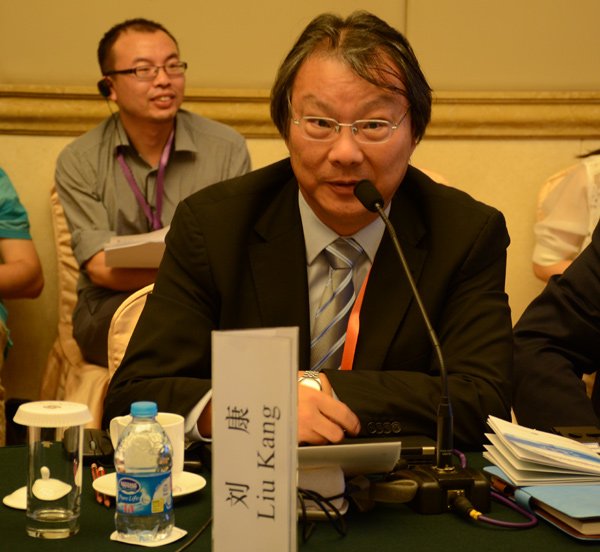China should face perception gap, says scholar
Updated: 2014-09-09 10:28
By Chen Bei(chinadaily.com.cn)
|
|||||||||
"China has to face such a perception gap and prepare for different ideas and opinions on its rise and global influence," said Liu Kang, director of Duke China Research Center and professor in the Department of Asian and Middle Eastern Studies at Duke University in North Carolina.
Liu made the remarks when summarizing one of three panel discussions that attracted 60 China-watch scholars, experts and prominent political figures from more than 30 countries and regions.
Most participants agreed that China's reform, especially its new round of deepening reform, will provide an opportunity for the world, but some scholars questioned China's anti-monopoly investigations and territorial disputes with Japan over the East China Sea.
Joshua Eisenman, a senior fellow of China studies at the American Foreign Policy Council in Washington DC, showed Western media reports suggesting China's antitrust probes involving foreign firms are protectionist tools favoring domestic companies.
Chinese scholars believed the antitrust investigations were launched as part of China's move to deepen its reforms in a bid to ensure fair market competition for all businesses. The probe targeted not only foreign companies but also domestic ones, said Chinese scholars. They cited Chinese reports on anti-monopoly investigations last year against China's two premium liquor producers – Moutai and Wuliangye –for their malpractice of price fixing.
When Jonathan Tepperman, managing editor of Foreign Affairs, said he thought China's stance in the East China Sea is aggressive, Chinese scholars replied that most Chinese saw the country as peace-loving and a victim in the East China Sea because the Diaoyu Islands have since ancient times belonged to China.
What has contributed to the gap between China's self-image and how some Western countries see China's rise and their relationship to the world?
Some scholars believed China's rate of economic growth has heightened suspicions that an economic power will traditionally boost an aggressive strategy on foreign policies.
But many others, both domestic and overseas, believe China will stick to its peaceful development policy. Weldeselassie Redae Halefom, head of the Ethiopian People's Revolutionary Democratic Front public relations department, said China has never, like most developed countries, plundered underdeveloped ones.
China's loans to poor countries have never added additional clauses, said Weldeselassie.
Most scholars thought it unrealistic to quickly erase the perception gaps since China's ascendance in world affairs is one of the most significant and challenging issues. What China should do is to face up to different ideas and better communicate with the world.
Related Reading:
'Inclusiveness' next key step in reforms

 Apple unveils the Watch, larger iPhones
Apple unveils the Watch, larger iPhones
 Cultural performance
Cultural performance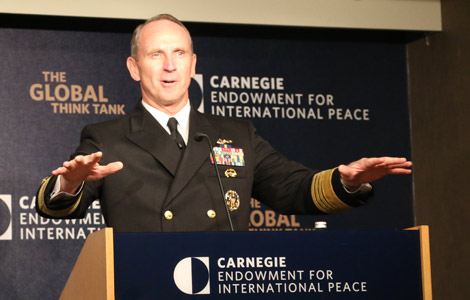
 Air incident should not define US-China relations
Air incident should not define US-China relations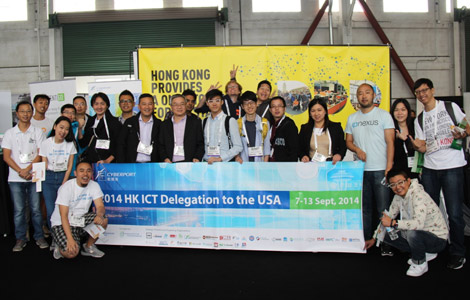
 Ready to disrupt
Ready to disrupt
 Is China ready for football?
Is China ready for football?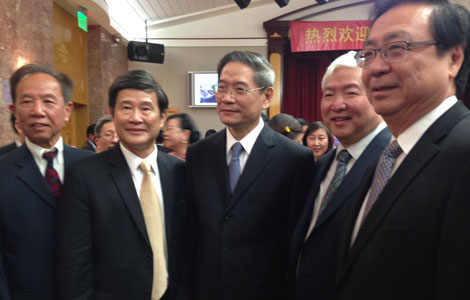
 Taiwan affairs chief visits US
Taiwan affairs chief visits US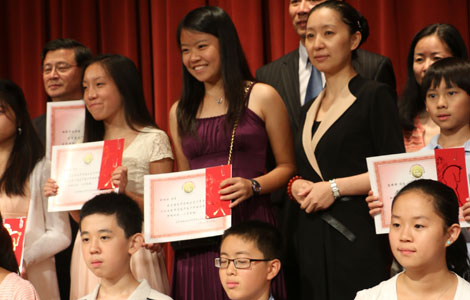
 Chinese embassy in Washington holds Teachers' Day reception
Chinese embassy in Washington holds Teachers' Day reception
 Walt Disney 90th Anniversary Exhibition held in Beijing
Walt Disney 90th Anniversary Exhibition held in Beijing
Most Viewed
Editor's Picks

|

|

|

|

|

|
Today's Top News
China, US rein in disputes
Alibaba kicks off IPO global roadshow in NY
US tech firm joins Chinese plant to help curb pollution
China's poverty cut off too low
Holiday gifts breach anti-graft rule
Tsinghua, Berkeley prepare joint institute
Moon Festival on the fast rise
Alibaba's IPO to set a new record
US Weekly

|

|
